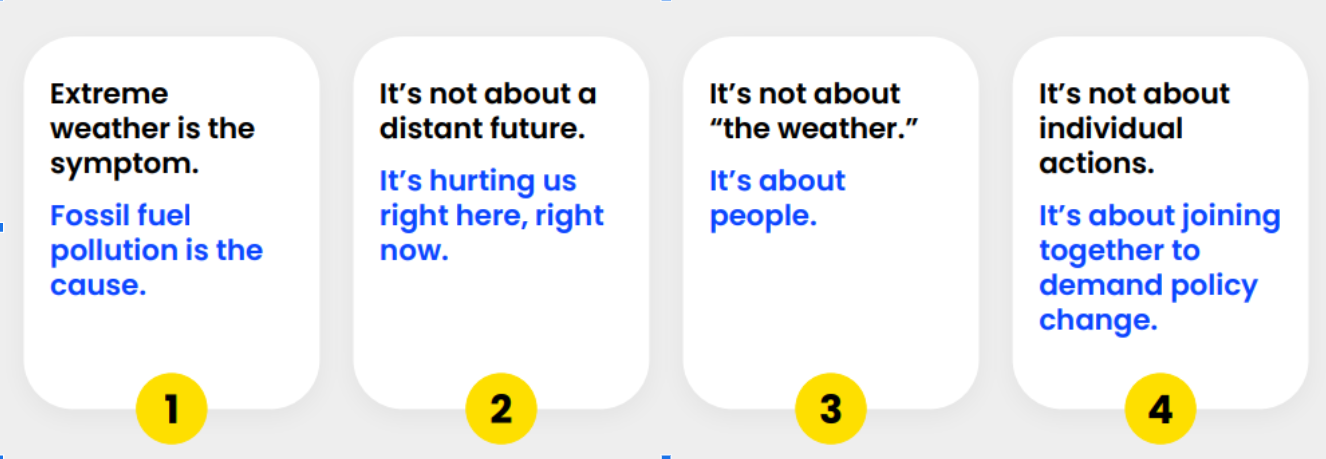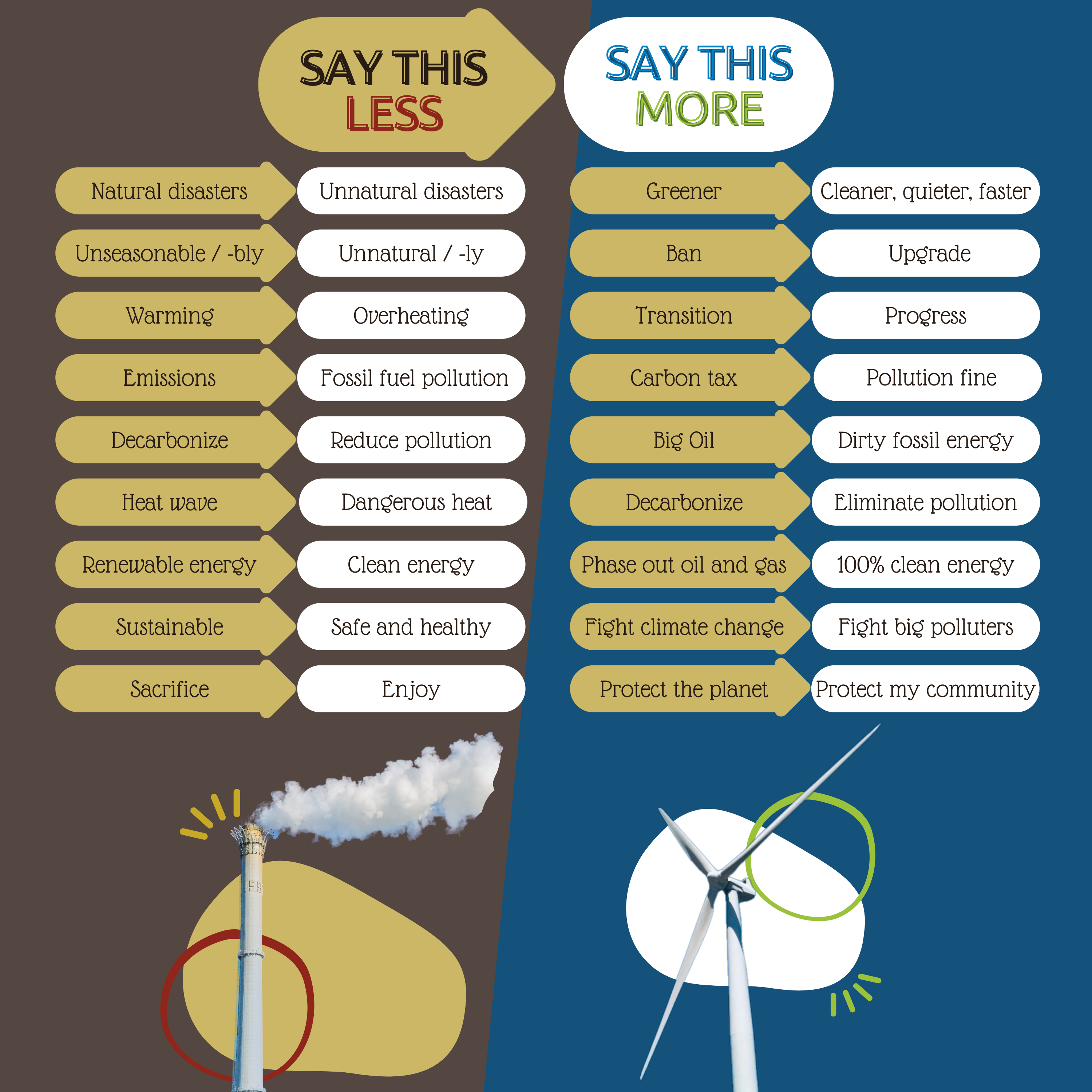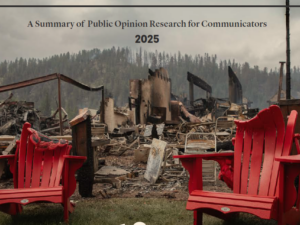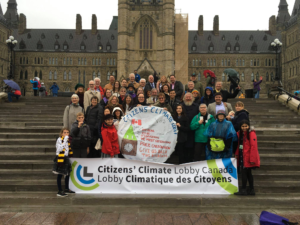In a nutshell: Moments before, during, and after extreme weather events offer us a window within which to most effectively capture people’s attention and turn climate change into a personal priority. Shifting the way we talk about these events (such as changing our wording from natural disasters, to unnatural disasters) also broadens the reach of our message. In depth: The communication methods surrounding climate action are a constantly shifting landscape. In the wake of the COVID pandemic, oppositional networks(1) have begun weaving conspiracies about overly alarmist, overreaching governments into their talking points, while drawing on very real cost-of-living concerns to knock climate action down the list(2) of Canadian families’ top priorities. The overall effect of these new narratives is to paint climate policies as overwrought and misguided, if not part of a sinister government conspiracy. They capitalise on structural vulnerabilities in our communication systems(3), including distrust of media, and on fears that current inequalities will be intensified not improved by climate, energy, and food policies. Furthermore, climate communicators still face headwinds over solution uncertainty (with many people still not making the connection between fossil fuel pollution and climate change), distance (the belief that the negative impacts of climate change are far down the road), and isolation (underestimation of the shared levels of concern across Canada). These obstacles demand a new way of talking about climate which builds awareness for the problem and generates enthusiasm for the solutions. Thankfully, new communication research from the Potential Energy Coalition may offer some strategies. Unnatural Disasters(4) Talk Like a Human(5) Different people may see the world in different ways, but there exist strategies to talk about climate change which will broaden the tent beyond the 1 in 4 people today who are very concerned about this issue. While climate change sceptics may be unreachable, there is a big group in the middle that are willing to listen, and for whom we need to make climate change more relevant and urgent. Moments of extreme weather are very effective times to start a conversation that turns climate change from an abstract global phenomenon into a personal priority. Studies have shown that people are often seeking information before, during, and after such events which offers a unique window of opportunity to educate the public about their connection to climate change. In order to educate people, we need to meet people where they are and build a baseline understanding from that point. We can do this by: Some common language unfortunately comes with partisan baggage, or has just been made less effective through extensive use. The Unnatural Disasters and Talk Like a Human papers recommend bold language with bipartisan appeal. Some examples can be found below, but please feel free to read through their full papers for an extensive list of communication tips, ideal word choices, and how to avoid common communication pitfalls. Sources Climate Communication: How to Effectively Talk About Climate
Talk Effectively About Climate Change
Home » CCL Canada News » Talk Effectively About Climate Change













